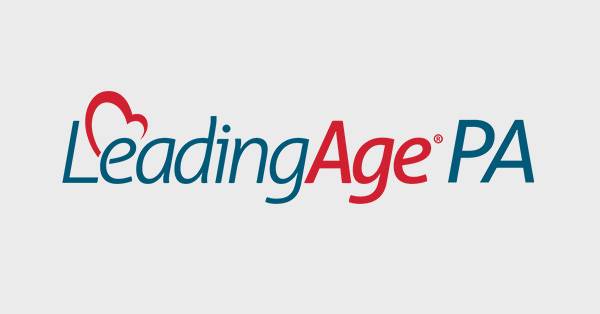- Solutions
- Solutions
- Home Health
- Hospice
- Life Plan Community
- Palliative Care
- Private Duty
- Senior Living
- Skilled Nursing
- Skilled Nursing
- Skilled Nursing Software
- Advanced Insights
- Customer relationship management
- Data and analytics
- Financial & operations management
- Marketing
- Nutrition management
- Referral management
- Regulatory compliance
- Retail management
- Resident engagement
- Revenue cycle management
- Skilled nursing interoperability
- Partners
- Blogs
- Resources
- About
- User Conference
Nutrition therapy for diabetes management with MealTracker
Diabetes is one of the most common diagnoses for older adults in care communities. Diabetes is linked not only to additional disease burden but also to higher health costs. Under the Patient-Driven Payment Model (PDPM), SNFs may now qualify for reimbursement of some of the expenses of non-therapy ancillary (NTA) comorbidities by receiving two points for an active diabetes mellitus diagnosis.
It is crucial for staff to understand and manage the factors that affect blood sugar level variances. So, they can provide appropriate care that meets each resident’s individual needs. This also helps to ensure those factors are included in the overall plan of care. MealTracker can help providers prepare and adjust plans for residents with diabetes.
Diabetes and nutrition
Staff need to understand some common factors that can lead to hyperglycemia and hypoglycemia. Hyperglycemia, or elevated blood sugar, can be a result of infection or stress. While, hypoglycemia, commonly referred to as low blood sugar, can result from advanced age, renal failure, polypharmacy, and varied nutritional intake. Since the American Diabetes Association no longer recommends sliding scale insulin regimens for long-term care residents, it’s imperative to address and adjust current medication regimens that may have been carried over from a hospital setting. In addition, caregivers can provide blood glucose monitoring, medication management, and individualized scheduled meals and snacks.
Nutrition recommendations from the ADA
Individualized meals and snacks for those in long-term or skilled nursing facilities are imperative, and MealTracker makes this task easy. According to the ADA, liberalized diets show improvements in the consumption of food. Additionally, they suggest that beverages help avoid unintentional weight loss and dehydration. In addition, they suggest that “while carbohydrate intake should be taken into consideration. However, they do not recommend ‘no concentrated sweets’ or ’no sugar’ diets as they are ineffective for glycemic management.” Instead, a consistent carbohydrate meal plan that allows a wide variety of food choices (e.g., general diet) may be more beneficial for nutritional needs and glycemic control in patients with type 1 or type 2 diabetes. So, managing nutrition therapy to meet these standards is key to providing high-quality care.
The top 5 recommendations for meal planning
Adopting a nutrition therapy approach using a more liberalized diet is leading the change to better management in SNFs and rehab centers. MealTracker’s advanced nutritional analysis feature helps meet five best practice recommendations for meal planning for diabetes:
- Include three to five servings of carbohydrates per meal.
- 15g is equivalent to one serving.
- Choose whole grains that include more fiber to slow absorption and stabilize blood sugar.
- Eat four to six ounces of protein.
- We recommend lean meat, chicken, fish, low-fat dairy, or soy.
- Include healthy fats and limit saturated fats.
- Avoid trans fats found in processed or baked goods and “partially hydrogenated oils.”
SNFs and rehab centers can significantly improve the care provided for diabetic residents by using individualized care plans that include nutrition therapy. MealTracker makes managing diabetic residents easier.
Reference: https://care.diabetesjournals.org/content/39/2/308
Disclaimer
The content in this presentation or materials is for informational purposes only and is provided “as-is.” Information and views expressed herein may change without notice. So, we encourage you to seek, as appropriate, regulatory, and legal advice on any of the matters covered in this presentation or materials.
Request a demo today for a closer look at MatrixCare.
See what MatrixCare can do for you
Amy Wooton
Amy Wooton, RDN, is a registered dietitian licensed in the state of Florida with over 18 years of experience in clinical nutrition leadership for senior communities as well as acute care, food service management, nutrition informatics, and wellness education. Amy is an active member of the Academy of Nutrition and Dietetics, was appointed Vice Chair on the Interoperability and Standards Committee, and is the leader of the Academy’s Nutrition Care Process Workgroup. Amy most recently accepted a Leadership Award from the Florida Academy of Dietetics. She has achieved years of diversified experience in all spectrums and disease improvement and prevention throughout each lifespan. Amy is a dedicated leader and is passionate about the success of nutrition interventions as an electronic solution to healthcare crises.
Related Posts



See MatrixCare in action
Start by having a call with one of our experts to see our platform in action.
MatrixCare offers industry-leading software solutions. Thousands of facility-based and home-based care organizations trust us to help them improve efficiency and provide exceptional care.
© 2025 MatrixCare is a registered trademark of MatrixCare. All rights reserved.





